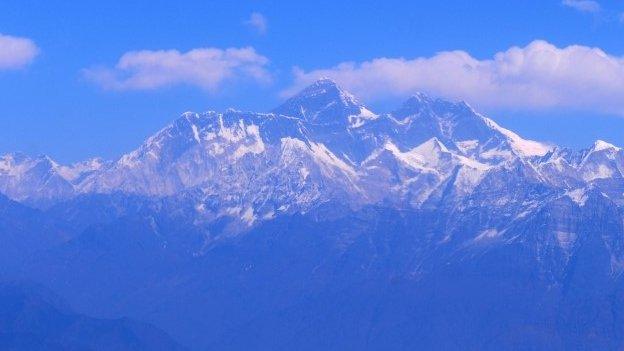Climate change scientists' bid to drill Everest glacier
- Published
Scientists to use 'car wash drill' on Khumbu glacier
Climate-change scientists are to travel to the Himalayas in a bid to become the first team to successfully drill through the world's highest glacier.
The Aberystwyth University-led group will use a drill adapted from a car wash to cut into the Khumbu glacier in the foothills of Everest.
They will work at an altitude of 5,000m (16,400ft), in the hope of finding out how climate change affects Khumbu.
Project leader Prof Bryn Hubbard said there will be "particular challenges".
The 10-mile (17km) long glacier, in north eastern Nepal, flows from as high as 7,600m (25,000ft) down to 4,900m (16,000ft) and is often used by climbers on their way to Everest base-camp.
'Contend with thin air'
Once the drilling is done, the team will be able to study the internal structure of the glacier - measure its temperature, how it flows and how water drains through it.
But it will be no walk in the park.
"Working in the field is challenging at best, but this mission presents some particular challenges," said Prof Hubbard, a winner of the prestigious Polar Medal, external for his previous work.
"We don't know how well our equipment will perform at altitude, let alone how we will be able to contend with the thin air."
Half of the EverDrill team's 1,500kg (236-stone) equipment will be airlifted on to the glacier by helicopter in several trips while the other half will be carried by Sherpas and yaks.
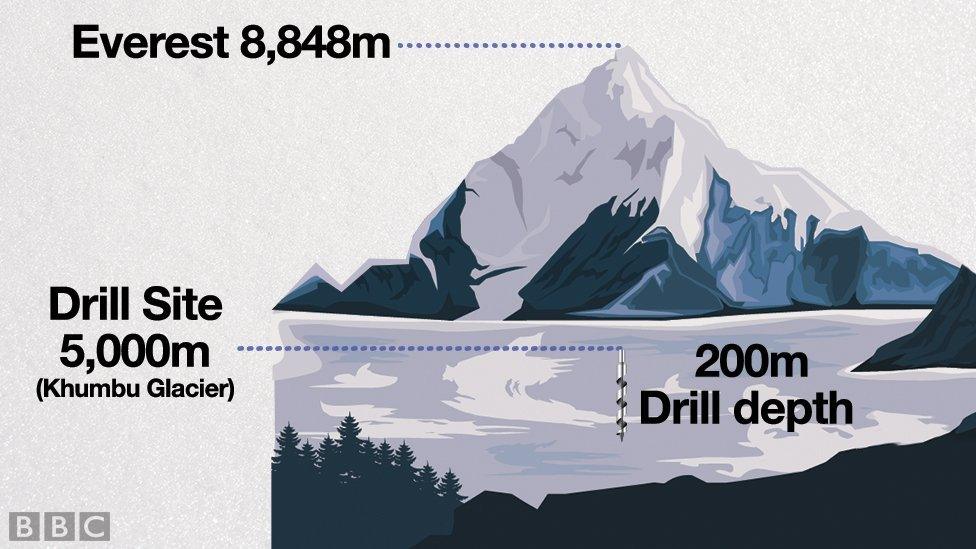
The adapted car wash drill produces a jet of hot water at a pressure high enough to cut through Tarmac.
It will be powered by three Honda generators, which will probably only be able to operate at 50% capacity due to the lack of oxygen.
"What we need to drill a bore hole through ice is ...hot, pressurised water," said Prof Hubbard. "You think 'hot, pressurised water, what can supply that? It's a car wash'."
While the equipment is lifted on to Khumbu, Prof Hubbard's team will fly to Nepal on Sunday before enduring a gruelling eight-day trek from Lukla airport, during which they will acclimatise.
Prof Bryn Hubbard on the EverDrill project - and his unlikely dislike of the cold
Prof Hubbard, who will be joined by Prof Duncan Quincey from Leeds University, said understanding what happens in these glaciers, is "critical" to predicting their response to climate change.
"Equally important is developing a better understanding of how they flow so that we can better predict when dams that form on these glaciers are likely to be breached, releasing vast volumes of water to the valleys below.
"This is a real risk in the Himalayas as it is in other regions such as the Andes, and has the potential to endanger the lives of thousands of people," he added.
Scientists have previously warned lakes and ponds forming on the glacier threaten settlements downstream if they overflow.
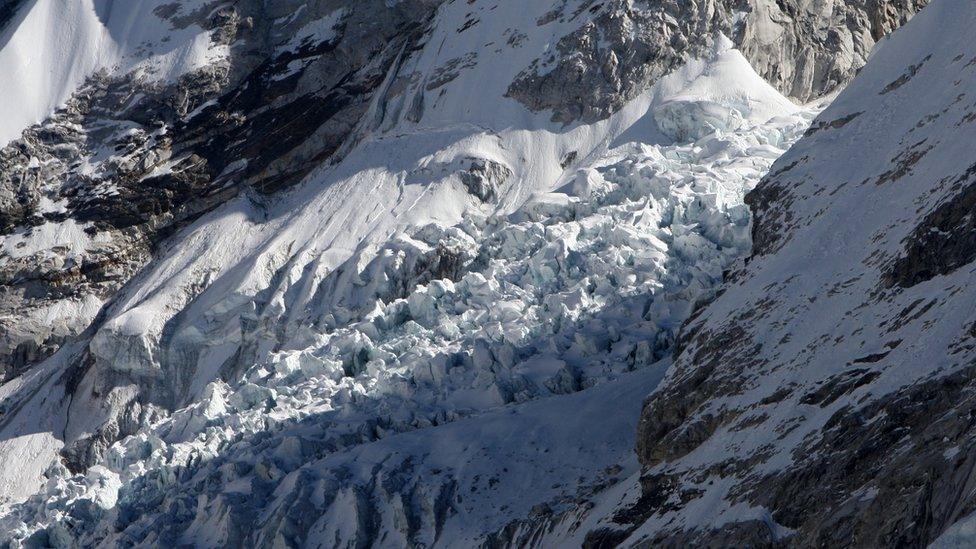
Khumbu and the surrounding areas are the source of water for about 40% of the world's population
PhD student, Katie Miles, who is also heading to Khumbu, said it is a "fantastic experience" to be involved in a project which could potentially gather ground-breaking data.
While "quite a lot" is known about the glacier from surface work and satellite imaging, we know "almost nothing" about its third dimension below, Prof Hubbard said.
He has been drilling bore holes since 1992 and has worked in places like Antarctica, Greenland and Svalbard.
So you might imagine he likes the cold.
"Strangely enough, no," he said. "I really don't like the cold. I'm quite used to working in the cold, I just don't like working in the cold."
But there will be a little room for creature comforts.
"I have a little stove-top espresso machine so a coffee in the morning and some Welsh whiskey at night," Prof Hubbard added.
- Published11 April 2017
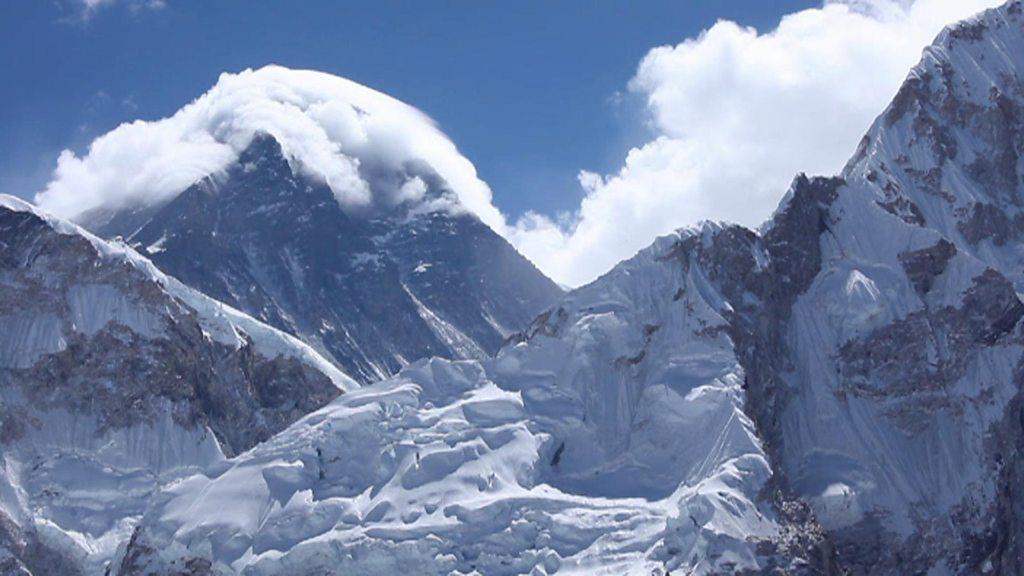
- Published27 November 2015
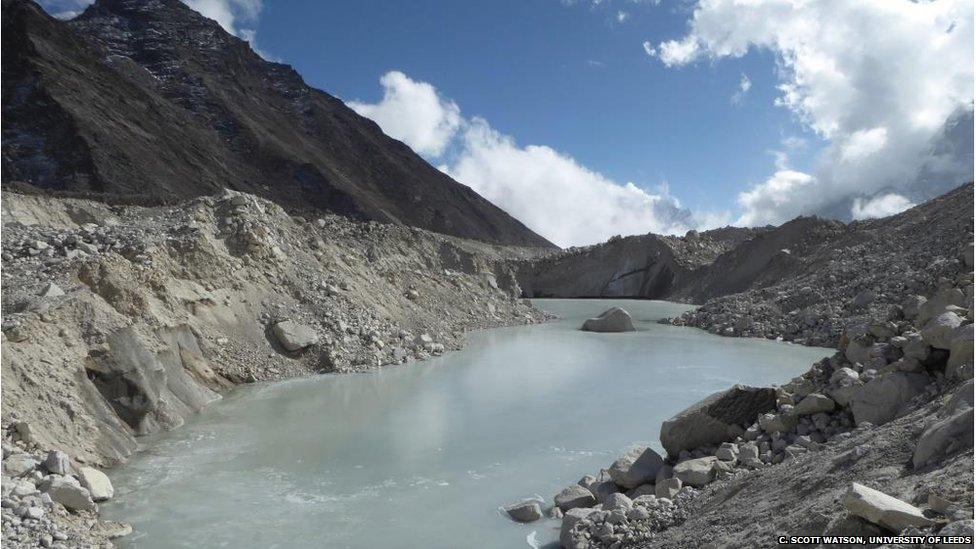
- Published29 May 2015
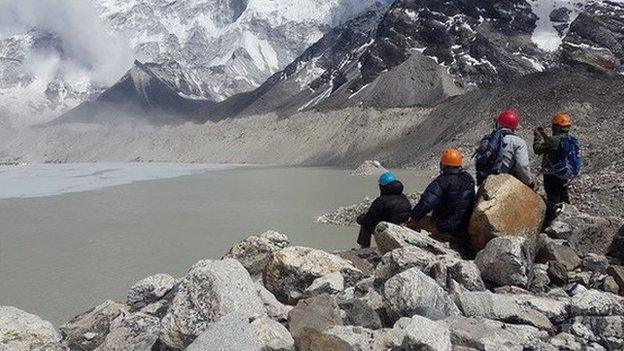
- Published18 February 2015
